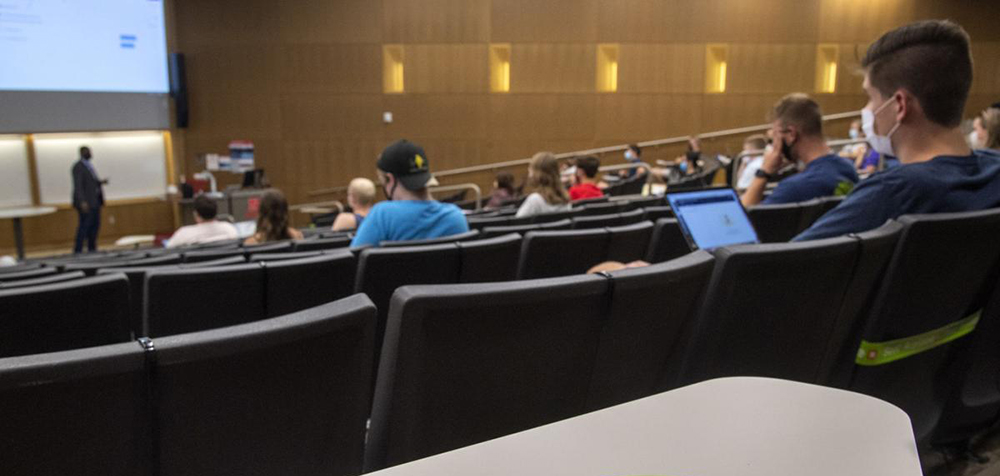Calendar Icon
Sep 13, 2021
![]() RSS
Submit a Story
RSS
Submit a Story

RELATED LINKS
In response to the COVID-19 pandemic in early 2020, the University of Nebraska-Lincoln was among many American universities who moved courses typically taught in classrooms to an online format for the remainder of the semester.
This rapid change created an unprecedented, virtually overnight change in teaching practices across the country. Many of these online practices had to be kept for the 2020-21 academic year as the pandemic continued.
Funded by a National Science Foundation (NSF) three-year, $349,997 grant, two College of Engineering faculty – Grace Panther, assistant professor of engineering education in Civil and Environmental Engineering, and Heidi Diefes-Dux, professor of engineering education in Biological Systems Engineering – are examining the extent to which engineering instructors have retained and extended practices and strategies adopted during the pandemic.
This new NSF grant expands on their previous research conducted via an NSF Rapid Response Research (RAPID) project concerning the teaching experiences of undergraduate engineering instructors during the COVID-19 pandemic. RAPID funding allows researchers to propose projects when there is an urgency to collect data.
"We are so thankful to all of the instructors who shared their stories over the last three academic semesters when things were uncertain and stressful," Panther said.
It was not a surprise that faculty had to make changes to their teaching practices when Nebraska went remote in March 2020. New technologies had to be learned to deliver courses, and new practices needed to be adopted to overcome student engagement challenges.
Now that the university has returned to in-class instruction, the question is whether instructors will retain, modify or add to these new teaching practices. Diefes-Dux and Panther will be looking into this question with the new three-year grant from the NSF Research in the Formation of Engineers program.
"There was much talk in the engineering education community about the potential for the COVID-19 pandemic to spur unprecedented long-term change in the way we teach," Diefes-Dux said. "Now we have the opportunity to see whether and how this happens."
The researchers agree that this new grant brings one big challenge – how to encourage participation of instructors who so far have not shared their stories.
"In education research, bias can be an issue if you only hear from a fraction of a study population," Diefes-Dux said. "With the support of Dean Lance C. Pérez and the engineering department chairs, we are looking forward to even wider instructor participation in this study. Only then can we really say what the long-term impact of COVID-19 has been on our teaching practices."
Engineering instructors who teach undergraduate courses have been sent invitations to participate. Those interested in participating who have not received an invitation should contact Heidi Diefes-Dux, heidi.diefes-dux@unl.edu.
Submit a Story